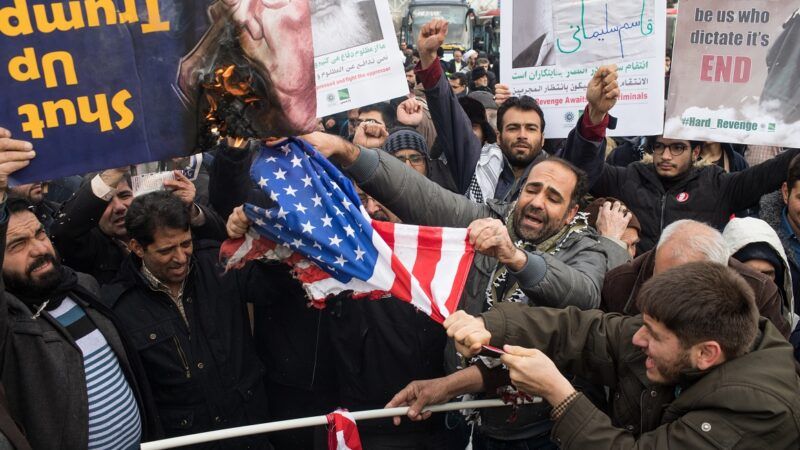Reckless Foreign Policy Gives the U.S. a Bad Reputation
A significant portion of the world views the U.S. as a threat to democracy in their home countries.

Democratic governance is in high demand, according to the 2021 edition of the annual Democracy Perception Index, a poll of more than 50,000 people in 53 nations. But it's also perceived to be threatened—by economic inequality, by suppression of free speech, by big tech companies, by unfair or corrupted elections, and by the United States of America.
44 percent of the respondents are worried the United States threatens democracy in their home countries. By contrast, 38 percent said that about China and 28 percent about Russia. The U.S. was deemed the biggest threat of the three in free and unfree nations alike. It was the top pick in Europe and Latin America, and it nearly tied with China for this dishonor in Asia. Only a few African nations were polled, not enough for a regional average, but the U.S. was the most widely selected threat there, too.
For a country that thinks of itself as the "leader of the free world," a global beacon of democracy, this is a difficult message. But it is one Washington needs to hear. U.S. foreign policy should not be dictated by global perceptions, but neither should such perceptions be ignored.
Perhaps the United States is seen as a threat to other nations' democracy because our government is often less an exemplar of liberty than a belligerent global meddler. Perhaps it's because Washington has spent the past two decades invading and occupying large swaths of the Middle East and North Africa. Perhaps it's because our leaders' diplomacy is frequently ham-fisted, hubristic, and naïve. Perhaps it's because Washington has literally overthrown democratic governments and has a unique—and risky—network of hundreds of military bases worldwide.
But why does the U.S. get the worst marks? The governments of China and Russia are far less democratic domestically than that of the United States—it's not even close. Russia has a few foreign military bases in its near abroad, ongoing intervention in Syria, and conflict with Ukraine following the 2014 Russian annexation of Crimea. Moscow also inserts itself into other countries' elections, often by social media campaigns but sometimes via more direct approaches. Beijing, meanwhile, is suppressing promised freedoms in Hong Kong, perpetually threatening Taiwan's tenuous independence, supporting the brutal regime in North Korea, and committing genocide against ethnic and religious minorities (such as the Uighurs) inside its borders. So why is the United States perceived as the more serious threat?
The survey doesn't directly answer that question, but it does provide some useful hints. While many see the United States as a threat to democracy now, "more countries say the U.S. has a positive than negative impact on democracy (49 percent positive vs. 35 percent negative)." This may mean that Washington's more recent behavior, in the post-9/11 era, has been negatively received, while a longer timeline produces more positive feelings.
Another hint is the uptick in positive views of the U.S. since Joe Biden became president. "The perception of the U.S.'s global influence on democracy has increased significantly around the world since the spring of 2020," the report says, "from a net opinion of +6 to a net opinion of +14."
Biden has yet to make significant changes to most of the global engagement he inherited. By and large, the wars, sanctions, and tariffs his predecessor left behind remain intact. But he is set to preside over the end of the U.S. war in Afghanistan, has slightly scaled down U.S. cooperation with (extremely undemocratic) Saudi Arabia, and has either rejoined or began negotiations to rejoin multiple major diplomatic agreements the Trump administration jettisoned. Some of this uptick may simply be a honeymoon period for Biden and/or opposition to former President Donald Trump. Next year's data will be more instructive, but for now this positive shift suggests moving away from military interventionism and toward diplomacy—abiding by the "rules-based order" that Secretary of State Antony Blinken has spoken of enforcing on China—would improve our global reputation.
It would be better for the United States in other ways as well. The policies that have caused other nations to perceive Washington as a threat to democracy have been harmful here too, making us less prosperous, less safe, and less free. Whether or not they threaten democratic governance abroad, they threaten it here.
